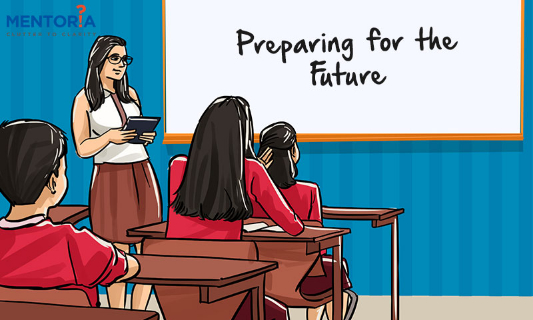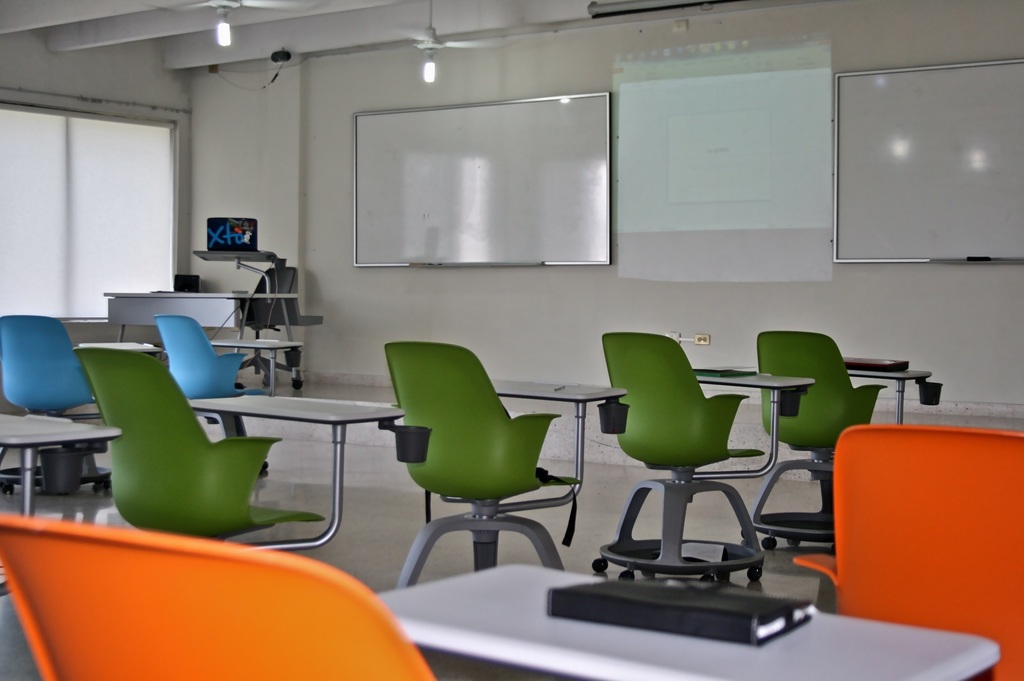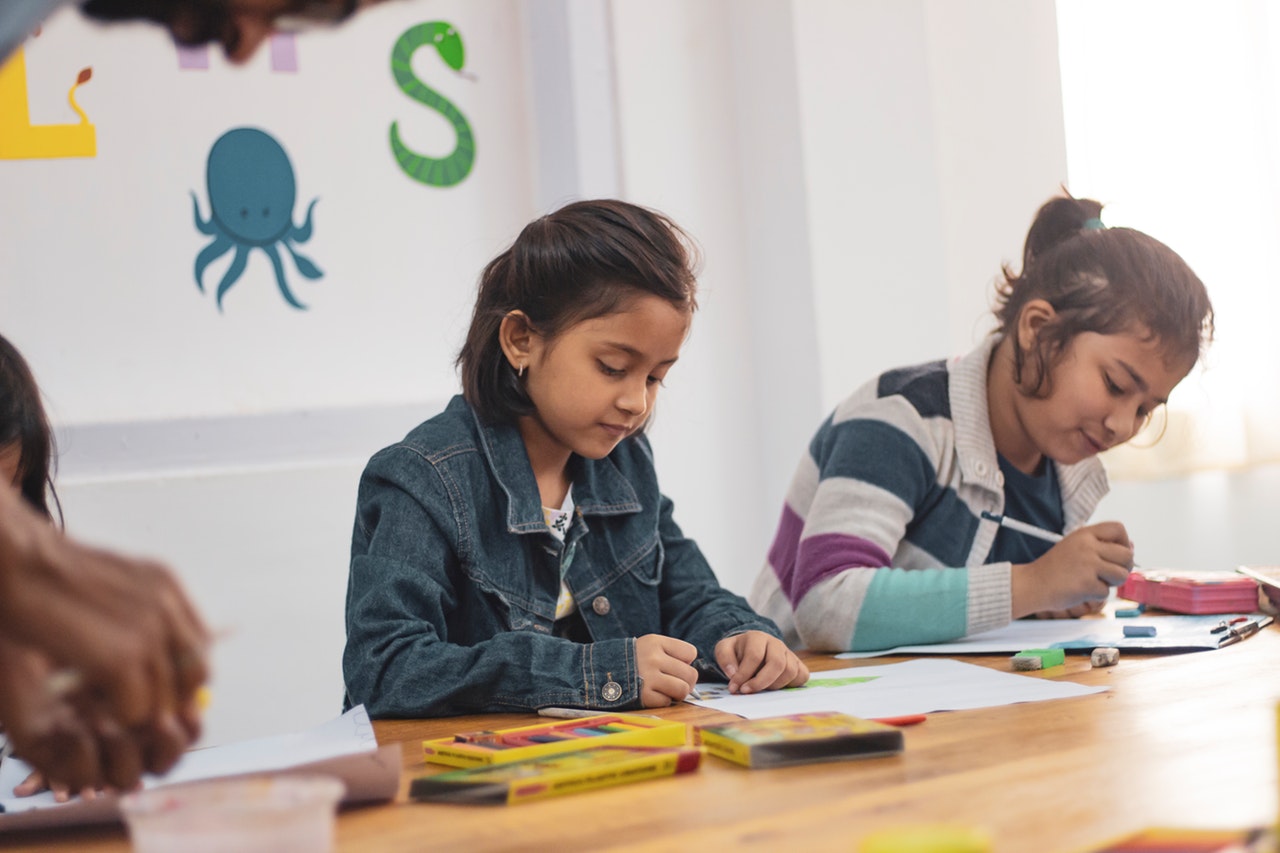What are the Modern Methods of Teaching

Modern teaching methods are essential in today’s environment because they inspire students to bring fresh ideas and concepts to the classroom. Various modern education approaches attempt to foster creativity and inventive thinking…. In addition, innovation in teaching methods is critical to improving the quality of education, which is a priority at this time.
We live in a world that is changing dynamically. Students today have more career options than ever, but as an educator, are you introducing them to these options, or even preparing them for the same? As an educator, you strive to go beyond the curriculum and ensure that all your students grow up to be responsible, successful adults. But the world around you is changing as we speak, and by the time your students graduate and become a contributing part of it, it’s going to change even more. How do you continue making a real, profound difference to the lives of your students?
We at Mentoria know that the career journey is anything but straightforward, especially in this changing world. That’s why we offer career counselling at any point during your career so that you can keep up with the changing world.
Modern Teaching Methods for Future Ready Students
Digital is the Way To Go
Move the ancient blackboard aside to make room for a projector. Ditch textbooks and written notes for ebooks and presentations. Upgrade your “techware” and experiment with digital formats to make your lessons more engaging. Switch to videos for a more thorough explanation. Videos are so popular today that over 8 billion videos or 100 million hours of videos are watched on Facebook every day (TechCrunch, 2016) and More than 500 million hours of videos are watched on YouTube every day (Business Insider, 2016). Videos break down complex concepts into easy-to-understand explanations in an engaging format that grabs the viewer’s attention. Many schools are also on board with virtual reality to provide a more interesting and contemporary way of teaching.
Turn to YouTube for educational channels like TED-Ed, VSauce, SciShow, etc., which feature researched content in a fun, simple, informative manner. Apart from this, you can also partner with professionals who offer e-learning hardware and software support to enhance your students’ learning experience.
Hands-On versus Bookish
Simply learning concepts is not enough anymore. Schools can implement new programmes and exercises that encourage thinking about the real-world applications of these concepts. The idea of homework and research must change to include more practical, hands-on learning. Discussing case studies, mock planning exercises, group discussions, and open-ended questions are a couple of ways to nudge students into thinking more about applying what they learn in the real world.
Arrange for an On-Campus Counsellor
Apart from learning disabilities, behavioural disorders and social disorders, students also exhibit manifestations of stress. Stress among students is induced by the pressure to perform well in academics, living conditions, the constant need to “fit in”, conditions at home and many other factors. Over 37% of Indian students are moderately depressed, according to a study published in the Asian Journal Of Psychiatry. The same study suggests that female students are more affected by depression. A more hard-hitting statistic? One student commits suicide in India every hour! Schools need to step up and provide the right counselling facilities on the school campus. Arranging for an on-campus counsellor can definitely help prevent depression or worse in students.
Mediate the Exchange of Ideas
Exchanging ideas is a big part of revolution and progress. Be it within your school or with students from other schools, it is beneficial to conduct or participate in exhibitions, events and festivals. This will help your students understand how others think and approach issues. They will have a platform to debate and discuss. This will also give them hands-on experience in planning, a chance to sharpen their entrepreneurial skills and learn networking, similar to what colleges already do.
The New-age Homework
Today, teachers assign homework in the form of research and projects. Many teachers expect slideshows and presentations as a part of these assignments. As a result, students use the Internet extensively for research, not just about the subject but also peripheral topics that only enhance their understanding of the concept. Additionally, the submission is done in the form of a presentation. Students can enhance their software skills while making their presentation slides engaging. They can work on their communication skills and build confidence when they present their work to a classroom full of students. This helps them work on additional soft skills necessary for the workplace. While the traditional approach to teaching focused mainly on academics, this new, digital approach helps the all-round development of the student.
Maintaining the Perfect Balance
Remember that all these new-age learning methods can serve as a great augmentation to teachers’ methodologies. However, while online material seems like a strong tool, it lacks the impact of face-to-face discussions, customised approach, and personalised treatment every student deserves. Teachers are the backbone of the education system. While it is not possible to replace what teachers bring to the table, it is definitely possible to enhance the quality of education by achieving the perfect balance between old and new methods.
How MKNS is Preparing Students
We recently spoke to Mrs Pradnya Gokhale, Principal of Mansukhbhai Kothari National School, Pune, and asked her how she’s dealing with this challenge:
1. Decode Interests and Strengths
“When children are young, focus on figuring out the basics like identifying their interests. Once you’ve done that, work towards nurturing them throughout their school life,” says Mrs Pradnya Gokhale.
It is difficult to get to know each and every student in your classroom, but knowing where their interests lie will only help you help them make the most of their education. Fuelling their interests and encouraging them to develop them further will help them prepare better for their career. In fact, the Central Board of Secondary Education (CBSE) introduced Know Your Aptitude (KYA) to help schools prepare students for the future. There are several such assessments that can help your students figure out where their future lies, and prepare them for the same.
“Once students understand their strengths, it helps them convert challenges into opportunities,” says Mrs Gokhale.
Discover the right career-fit for you based on your unique strengths & Interest through Mentoria’s career assessment test – India’s most reliable & comprehensive psychometric assessment!
2. Offer Reality Checks
Mrs Gokhale says, “We have noticed that by Class 8, students begin to recognise their strengths, and begin questioning and exposing themselves to various career options. So, ideally, this is the best time to introduce them to various career options. We have people from different professions coming to school and talking to children. Say someone from the field of marine engineering offers a peek into what the professional life of a marine engineer looks like, won’t that give a child better insights into the career?”
A lot goes into deciding a career path. But the one thing that helps the most is offering students a realistic perspective of the career they choose. While many have a general idea of most careers, it is important to help your students get in-depth information so they can make better, more informed decisions regarding their future.
Apart from visiting faculty, MKNS also has Mentoria’s Career Tabs installed in their library, which helps students look up information on their careers or even gain access to webinars by experts from their chosen industry, who help them get a realistic understanding of the good, bad and ugly in their industry.
3. Befriend Technology
Gone are the days of blackboard and textbook education. Technology is now a huge part of learning.
“Students are being introduced to game-based platforms (like Kahoot!) for learning, and are even encouraged to make their own multimedia presentations. We also dedicate a Saturday to clubs, where students can learn skills like film-making. These clubs offer a way for students to express themselves using different kinds of tools and technology,” says Mrs Gokhale.
Technology has already taken over most of our tasks. It is high time children learn how to get familiar with technology and its many benefits.
4. The World of Workshops
With the dawn of automation, critical thinking has become a coveted skill. All process-oriented jobs will soon be taken over by machines, leaving humans to do the thinking part of jobs. While most schools are making conscious efforts to build their students’ critical thinking abilities, merely devoting one period to critical thinking doesn’t work. So, MKNS took on a different approach:
“While subjects are taught in classrooms, honing critical thinking requires more space. A student has to be introduced to the concept again and again. So, we hold workshops where our teachers use different activities to teach critical thinking skills. This prepares children for the future. And what better time than middle or secondary school? After all, that’s when students start asking the ‘whys,’” says Mrs Gokhale.
5. Hone Collaboration
Every student will eventually become a part of a working team. But how many of them are really well-versed with team dynamics?
Mrs Gokhale addresses this by saying, “It’s a part of our Sustainable Development Goals (SDG) this year. We also have project designing as part of our assessments. It introduces children to the concept of collaboration, which is one of the basic skills we want our children to learn as we prepare them for the future. In fact, we introduce project-based learning from Class 4.”
A lot of students lose job opportunities because they lack basic skills like collaboration and communication. It is, therefore, important to include activities in school to promote these skills, so children learn early on how to work in teams.
While these are some of the methods MKNS has adopted, there are several other ways you can employ to help your students prepare for the future. If you need help with this; reach out to us. At Mentoria, we have a team of experts ready to help you and your students prepare for the future.
Kick-start your career discovery journey with Mentoria & be sure to find the right career fit for you. Our 4-step career guidance solution, helps us find the right career fit for you from 3 streams, 850+ courses & 12,000+ careers.












